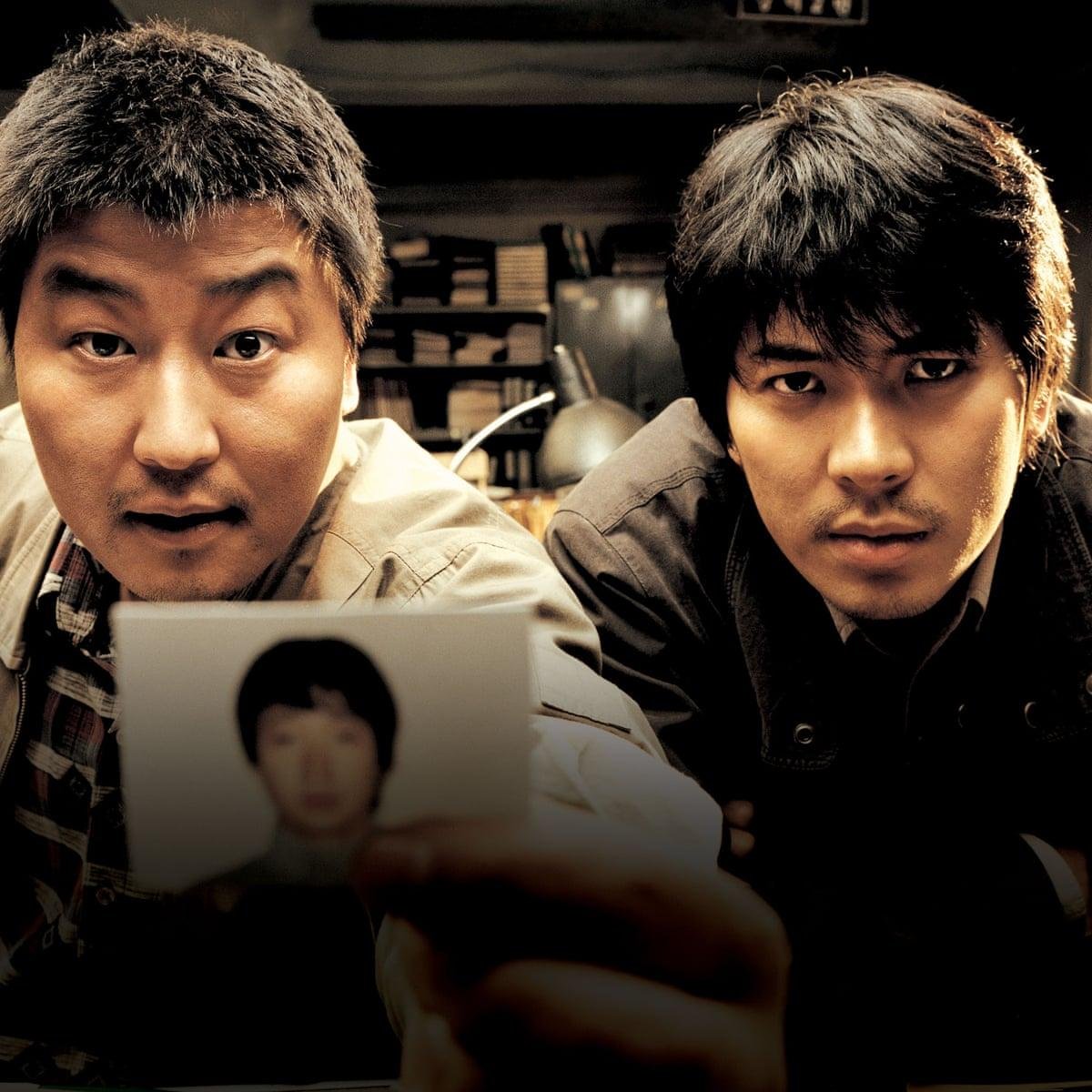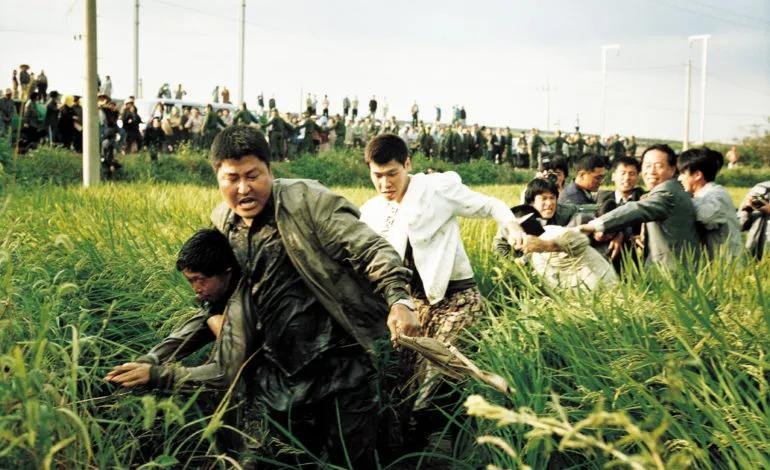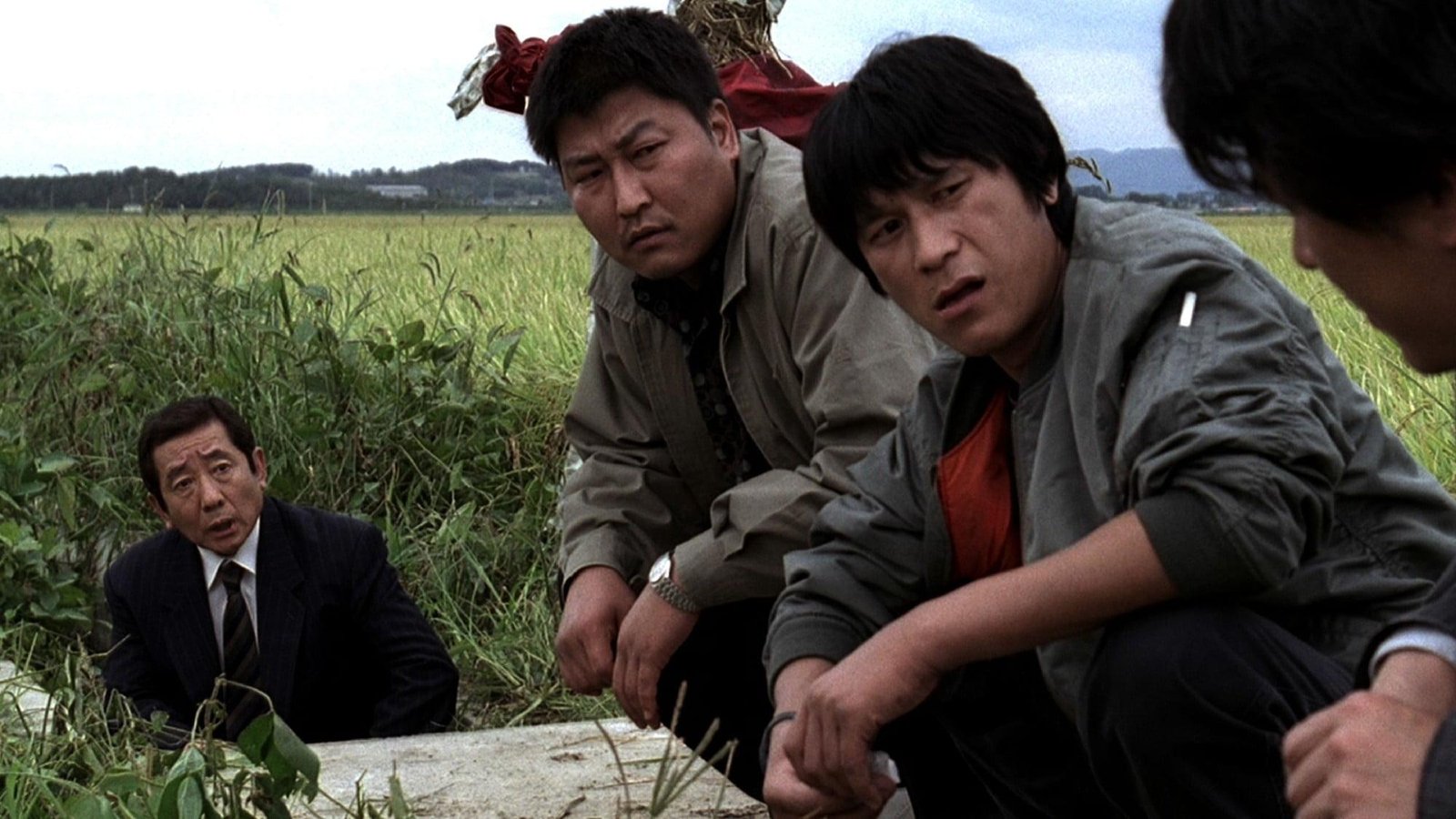Exploring the Brilliance of Bong Joon-ho’s ‘Memories of Murder’
Bong Joon-ho is a master of thrillers, and his 2003 film “Memories of Murder” is a perfect example of his brilliance. The movie is based on the true story of South Korea’s first serial killer, and Joon-ho’s take on it is nothing short of remarkable. From the direction to the performances, “Memories of Murder” is a tour de force in every aspect. In this article, we will delve deeper into the film’s various aspects and analyze what makes it such a cinematic masterpiece.
Bong Joon-ho is a master of thrillers, and his 2003 film “Memories of Murder” is a perfect example of his brilliance. The movie is based on the true story of South Korea’s first serial killer, and Joon-ho’s take on it is nothing short of remarkable. From the direction to the performances, “Memories of Murder” is a tour de force in every aspect. In this article, we will delve deeper into the film’s various aspects and analyze what makes it such a cinematic masterpiece.

Introduction to the film and director Bong Joon-ho
If you’re a fan of Korean cinema, then you must have heard of the visionary director Bong Joon-ho. Known for his unique approach to storytelling and his ability to blend genres seamlessly, Bong Joon-ho has been making waves in the film industry for quite some time now. In this article, we’ll be taking a closer look at one of his most notable works, “Memories of Murder”. We’ll delve into the plot and characters while also analyzing Bong’s directorial choices that make this crime thriller a must-watch. So sit back, relax, and get ready to learn more about the masterful mind behind the camera, Bong Joon-ho.
Key themes explored in the film
In Bong Joon-ho’s “Memories of Murder,” the key themes explored are the fragility of justice and the corruption of power. The film examines the investigation of a series of murders in a small rural town in South Korea during the 1980s. As the detectives become increasingly desperate to solve the case, they resort to brutal and unethical tactics, revealing the dark underbelly of law enforcement. Joon-ho masterfully navigates these themes, highlighting the complexities and contradictions of human nature, and ultimately asks us to question the very systems that we rely on for justice.
Analysis of the film’s narrative structure
Bong Joon-ho’s Memories of Murder is a cinematic masterpiece that deserves a closer look at its narrative structure. As the film progresses, we see a gradual shift from a procedural crime drama to a more introspective character study. The plot is masterfully crafted, with each scene building on the previous one and leading seamlessly to the next. The film’s narrative structure is tightly woven, with no wasted scenes or unnecessary plot points. Bong Joon-ho’s direction is impeccable, delivering a complex and nuanced story that keeps us on the edge of our seats until the very end. Overall, Memories of Murder is a must-see film for anyone interested in great storytelling and filmmaking.

Examination of the characters and their motivations
When examining the characters and their motivations in Bong Joon-ho’s Memories of Murder, it becomes clear that each character is driven by their own unique set of circumstances and desires. From the obsessive and erratic detective Park to the more level-headed and methodical detective Seo, the film delves into the complexities of human behavior and the lengths people will go to in pursuit of their goals. The film’s exploration of these characters and their motivations is one of its greatest strengths, and it keeps the audience engaged from start to finish. Overall, Bong Joon-ho’s Memories of Murder is a fascinating examination of the human psyche and a must-see for fans of cinema, movies, and actors.
Discussion of the film’s visual style and cinematography
Bong Joon-ho’s “Memories of Murder” is a masterpiece in terms of visual style and cinematography. The film’s use of lighting, camera angles, and color grading is impeccable, creating a bleak yet beautiful atmosphere that perfectly captures the tone of the story. From the opening shot of the rural landscape, to the intense interrogation scenes, to the final chilling shot, every frame is carefully crafted to tell the story and immerse the viewer in the world of the film. The use of long takes and tracking shots adds to the tension and urgency of the investigation, while the muted color palette contributes to the feeling of despair and hopelessness. Bong Joon-ho’s attention to detail and mastery of visual storytelling make “Memories of Murder” a must-see for any cinephile.
Exploration of the film’s use of sound and music
Bong Joon-ho’s Memories of Murder is a masterpiece for many reasons, but one of its most remarkable features is the use of sound and music. The soundtrack is a complex and carefully crafted collage of sounds, music, and silence that creates a haunting atmosphere and enhances the film’s themes and emotions. The score is minimalistic, but it complements the visuals and the story perfectly, creating tension and suspense without overpowering the action. The sound design, on the other hand, is immersive and realistic, capturing the details of the rural environment and the crimes that take place. Overall, Memories of Murder is a superb example of how sound and music can contribute to the cinematic experience and elevate a film to new heights.

Comparison of Memories of Murder to Bong’s other films
When comparing “Memories of Murder” to Bong Joon-ho’s other films, it’s clear that this early work laid the foundation for the director’s signature style. From its dark humor to its biting political commentary, “Memories of Murder” showcases Bong’s ability to balance genres and explore complex themes. However, the film also stands out for its raw intensity, particularly in its harrowing portrayal of a serial killer on the loose. While Bong’s later films may be more polished and refined, “Memories of Murder” remains a standout achievement in his filmography, and a must-see for fans of his work.
Significance of the film’s setting in rural South Korea during the 1980s
In Bong Joon-ho’s Memories of Murder, the setting of rural South Korea during the 1980s is significant for several reasons. Firstly, it allows the film to explore the cultural and societal norms of an era that was marked by political turmoil and authoritarianism. Additionally, the setting helps to create a sense of isolation and claustrophobia, as the murder investigation takes place in a small town where everyone knows each other. This sense of confinement adds to the tension and suspense of the film, as the detectives struggle to catch the elusive killer. Overall, the setting of rural South Korea during the 1980s serves as a crucial backdrop for the film, providing context and depth to an already compelling story.
Interpretation of the film’s ambiguous ending
Bong Joon-ho’s “Memories of Murder” is a masterful crime drama that keeps the audience guessing until the very end. The film’s ambiguous ending has left many viewers wondering about the fate of the killer and the detectives who have been chasing him. Some have interpreted the ending as a commentary on the cyclical and never-ending nature of violence in society, while others have suggested that it is a statement on the limitations of justice and the fallibility of human memory. Regardless of the interpretation, it is clear that Bong Joon-ho has crafted a film that is both thought-provoking and emotionally resonant, and that will continue to be analyzed and discussed for years to come.
Critical reception and legacy of Memories of Murder
Memories of Murder, directed by Bong Joon-ho, is a crime-drama film based on the true story of South Korea’s first serial killer case. The film has received critical acclaim since its release in 2003, often regarded as one of the best films of the 21st century. Its intense storytelling, cinematography, and performances by Song Kang-ho and Kim Sang-kyung have been highly praised by audiences and critics alike. Memories of Murder has also left a significant legacy in South Korean cinema, with many filmmakers citing it as an inspiration for their own works. Its influence can be seen in Bong Joon-ho’s later films, including Parasite, which won the Palme d’Or at the 2019 Cannes Film Festival.
For more information about Bong Joon-ho Memories of Murder analysis, including movie details, cast information, etc..
check out the filmaffinity page.



